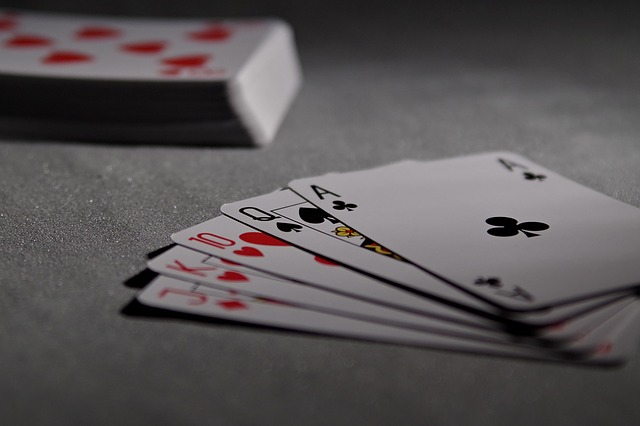READ ALSO: Black 7 Card Game
7s Game Rules
7 of Diamonds is a card game, which is played with a standard deck of cards. Here’s a breakdown of 7s game rules.
Objective
The goal is to get rid of all your cards by following specific rules for playing them in sequence.
Setup
- Use a standard 52-card deck.
- Deal all the cards evenly among players (usually 3-6 players). Some players might have one more card if the number doesn’t divide evenly.
- Players keep their cards hidden from others.
Gameplay
- The 7 of Diamonds is the starting card and must be played first.
- Players take turns clockwise, either playing a card or passing if they can’t play.
- The cards are built outwards from the 7 in sequence and by suit:
- E.g., after the 7 of Diamonds, players can add the 6 of Diamonds or the 8 of Diamonds.
- Then, players can expand to other suits once the suit has started. For example, if the 7 of Diamonds is out, players can add the 7 of Hearts, 7 of Spades, or 7 of Clubs.
Rules for Card Game 7/7 Cards Rules
- Playing Cards:
- Cards must be placed in numerical order, either ascending or descending.
- You can only play a card if it directly connects to the sequence already on the table.
- Pass Rule:
- If you can’t play a card, you must pass your turn.
- Strategy:
- Hold onto cards that block others from playing until a strategic time.
Winning
The first player to get rid of all their cards wins.
The game continues until all players have finished, and the order of winners is determined.
This game is similar to other sequencing card games like “Sevens” or “Parliament”, and it’s easy to play with a group!
Table of Contents
7 Card Game Scoring/Sevens Scoring by Uno
Take inspiration from the classic UNO rules and use the same scoring system, add up everyone who has cards left and award the winning player the combined score.
Sevens the Card Game Scoring: Card Values
Work scoring out as follows:
- Numbered cards – Face Value;
- Ace – 1 point;
- Jack, Queen, King – 10 points.
Sevens Card Game Scoring: Who Is the Winner?
When everyone’s done playing, whoever has the most points accumulated across the entire game wins.
Card Game 7s Scoring/Sevens Card Game Rules PDF
If you would like save, share, or print this page as a PDF, here it is below.
Sevens Card Game Scoring Sheet
You do not need a specific scoring sheet to keep scores for Sevens. On a piece of paper, simply draw as many columns as there are players in the game.
After each round, simply write the number of points won by the winner of the game in their column, then add up these scores to see who is the overall winner.
READ ALSO: Redgames1 & More
7 Card Game
Games of Sevens are fairly quick, which means you can play plenty of rounds in a short space of time so introducing a scoring system makes sense.
7s Game Rules for 2 Players
Sevens, also known as “Fan Tan” or “Parliament,” is a card game that’s simple to adapt for two players.
Here’s how to play with two players:
Objective
The goal is to be the first player to get rid of all your cards by building sequences of cards in suits starting from the sevens.
Setup
- Use a standard 52-card deck.
- Shuffle and deal the entire deck evenly between the two players (26 cards each).
- Players can organize their cards by suit and rank for easier play.
Card Game 7 Rules/Rules of 7s for 2 Players
- Starting the Game:
The player with the 7 of diamonds starts by placing it in the center. - Building the Sequences:
Players take turns. On their turn, a player must:- Play a card that either starts or continues a sequence.
- Sequences are built up from 7 to King and down from 7 to Ace in the same suit.
- Example: After the 7 of diamonds, you can play the 6 of diamonds or the 8 of diamonds.
- Play a card that either starts or continues a sequence.
- If You Can’t Play:
- If you cannot play a card, you must pass. In some variations, you may agree on a penalty, like skipping your next turn.
- Strategic Passing:
- With only two players, you may choose to hold onto key cards (like other sevens) to block your opponent temporarily, forcing them to pass.
- Winning the Game:
The first player to play all their cards wins.
Additional Tips
- Blocking Strategy: Hold onto cards that prevent your opponent from extending sequences, especially sevens and their adjacent cards.
- Memorize Played Cards: Keep track of which cards are already played to anticipate your opponent’s moves.
The simplicity of Sevens makes it easy to enjoy, even with just two players. Adding penalties for passing or using jokers as wild cards can spice up the game if desired!
Photo Credits: Gather Together Games

I loved your breakdown of how to play 7 of Diamonds in Sevens! It was really helpful, especially for someone like me who is just getting into these card games. I appreciate the tips on strategy too; can’t wait to try them out next game night!
Hi TC Lottery Login,
Welcome to Chick About Town, and thanks for your comment. I am glad you found this post useful. Enjoy your card games!
Biche